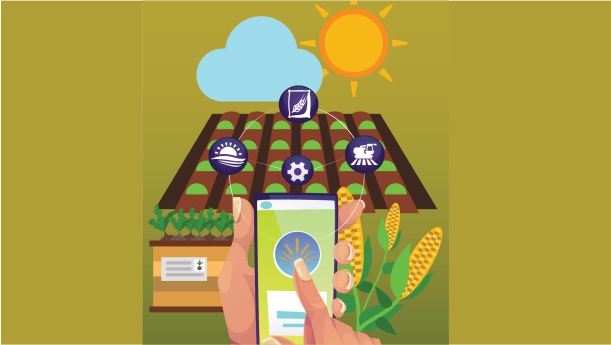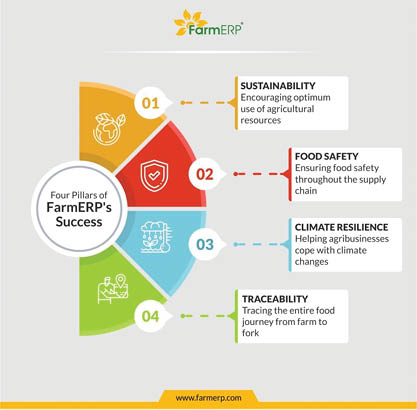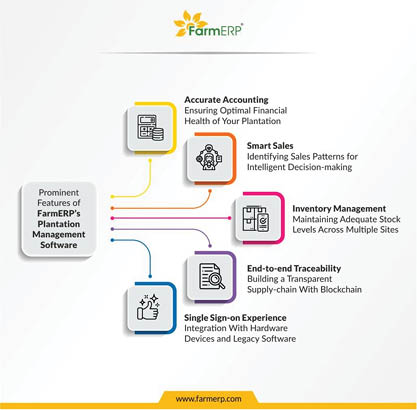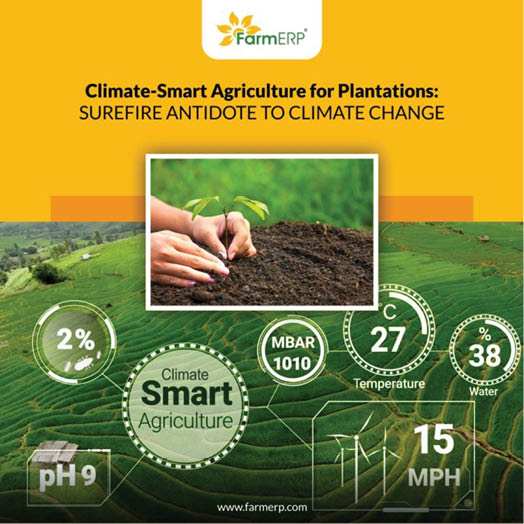
An ‘agtech’ platform that aims to bring its services across the agricultural value chain, FarmERP collaborates with several national and international corporates, agribusinesses, research programs, FPOs and FPCs, and policy-makers to further their mission of making agriculture more profitable and predictable for all stakeholders.
Tell us about FarmERP
My colleague Santosh and I both come from an agricultural background. During our college days we saw the plight of the farmers and stakeholders involved in the industry who were not getting the right remuneration for their produce. They faced a lot of problems because of the lack of information and knowledge, amenities, business connections, and market linkage. This was majorly because agronomic processes were not practised as a business in those days. There was no ‘revenue model’. With this market insight, we incepted FarmERP with the aim of assisting farmers and making the operations of the businesses more profitable by way of improving productivity with the help of information technology.
How does FarmERP help businesses (its customers)?
FarmERP is incredibly comprehensive as a platform. We have taken all farm operations to maps, QR code-based access control across the business processes, the implementation of agriculture-focused accounting and costing module, hydroponic packs, IoT device integrations, etc. We have also established relationships with prominent FPOs and FPCs focusing on the crux of empowering farmers directly using our technology platform.
FarmERP is best-known for their project of ‘Uberization of Agriculture for smallholder vegetable growers’, a notable contribution to the space of Indian agriculture. The Uberization project was aimed at enabling smallholder farmers to make their farming journey predictable, as well as hone efficient daily practices.
India is largely an agro-based economy and is rapidly transforming into a digital one. How is FarmERP leveraging the huge business potential that the country presents?
Digital transformation is certainly heightened post-Covid, and agriculture is at the threshold of this. Many agriculturalists, stakeholders, including supply chain agents have understood the benefit of going digital since the onset of the pandemic. The inability to move from one place to another made it essential to continue the business of agri-commodities to either buy, sell, or produce highlighted the need for a digital transformation in the sector. We have potential and services offering for all the stakeholders in the agriculture supply chain so the digital revolution has been a positive change for FarmERP.
Tell us about the major challenges that you have faced in your journey and how you overcame them.
When we started FarmERP, we were a little before time as the penetration of the internet and technology among farm labourers was absolutely zero. The adoption of technology was our biggest challenge, and the initial response from the agricultural community—owing to the lack of technology adoption—was not great. Connectivity was another major challenge. But, today with increasing access to mobile phones and digital devices, the scenario is changing. Platforms such as WhatsApp and Facebook have ushered in an era of technology as farmers have started using these as tools.
However, since farmers did not want to invest much money in technology, we, instead of working with individual farmers like we earlier did, went to the companies that were into agricultural sectors like agribusiness companies, contract farming companies, the companies that are into farming and are working with farmers, the FPOs, and FPCs. We then expanded our platforms to cover their business largely and that is how we grew.
Can you talk about any customer/stakeholder feedback that you have incorporated as a standard operating procedure at FarmERP?
While implementing FarmERP in Turkey—at an apple and nectarine plantation owned by the country’s largest fruit company, with more than 3000 acres of land and of 6.5 million trees—we experienced that the client has multiple locations, so the band holding was huge. We realised that to equip FarmERP to manage such a huge project, we need to think of multi-storeyed inventory management, optimising resources, especially labour, and better machinery planning. These few aspects were part of the major feedback from them. We made the necessary changes and alterations in the FarmERP module after that and added these features.


Your thoughts on the role of innovation in sustainable development? Also, kindly elaborate on the kind of technology you deploy in your business.
We are working towards two of United Nations’ SGDs—climate change and zero hunger. We are members of the sustainable rights platform and are working on many projects which are helping farmers grow rice sustainably.
In our field, sustainability is about optimising resources—water, fertilizers, chemicals, labour, and fuel—and this is exactly what we are doing. Sustainability can be monitored and managed on FarmERP which shows the farm managers their sustainability index or score.
We have a completely digital platform that is used to run the business of small, medium, and large-scale companies. It integrates legacy software systems as well as hardware devices like sensors, water irrigation systems, etc. We also use artificial intelligence, blockchain, IoT, machine learning, and data analysis tools.
Please tell us about the markets (regions) you cater to in India. Also, tell us about your foreign ventures.
We work in almost all states across India. We have also deployed FarmERP in 25 countries across geographies such a South America and North America, Middle-East, Africa, and Southeast Asia. Recently, we ventured into the big farms of countries such as Sri Lanka, France, UAE, Nigeria, Kenya, Vietnam, Ethiopia, Sudan, Indonesia, and several others.
Could you tell us a bit about FarmERP’s plans as well as the future potential of a business such as yours?
We are planning to scale up FarmERP to around two million acres in the next two years. We plan to come up with new features and want to establish a personal network and open offices in various other countries to expand our business. This is something that we are working on very aggressively. We want to have the biggest company in the farm management software market.
Log In or become an AIMA member to read more articles
